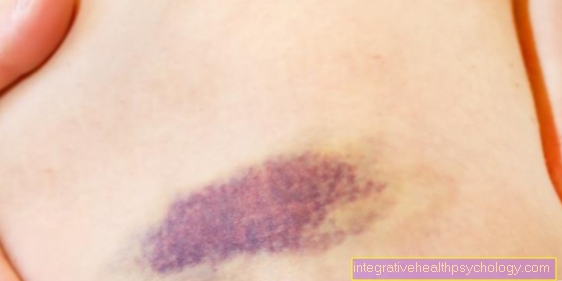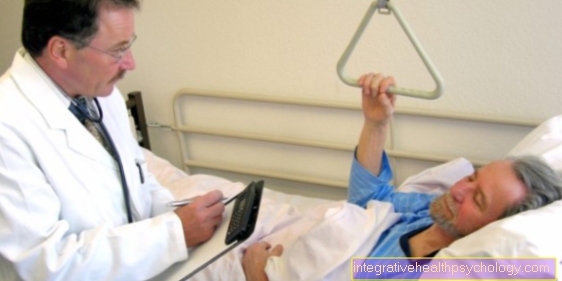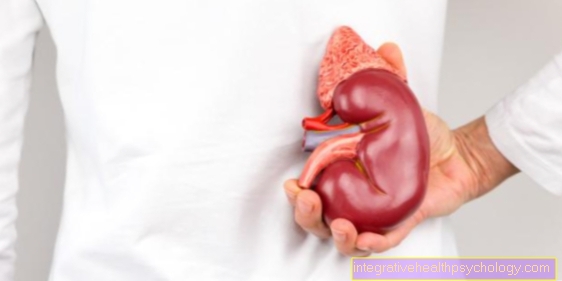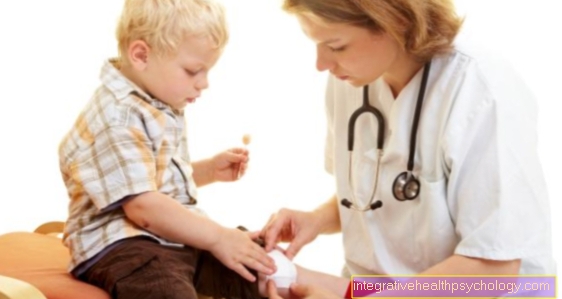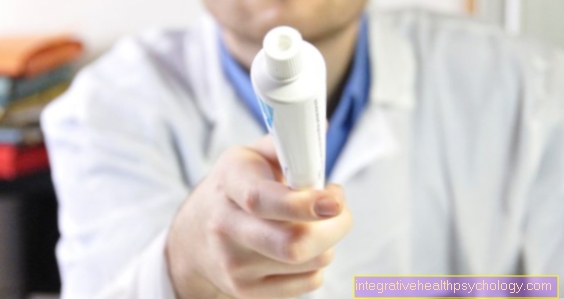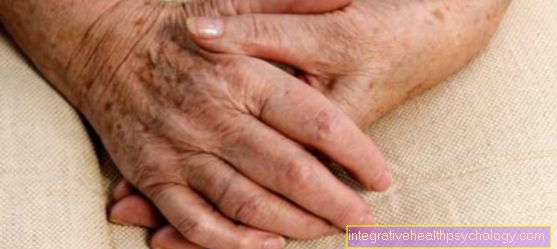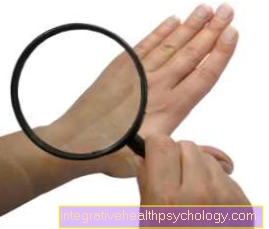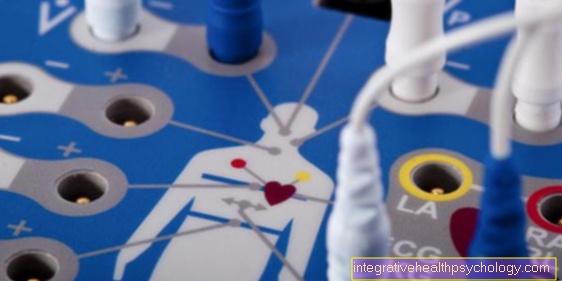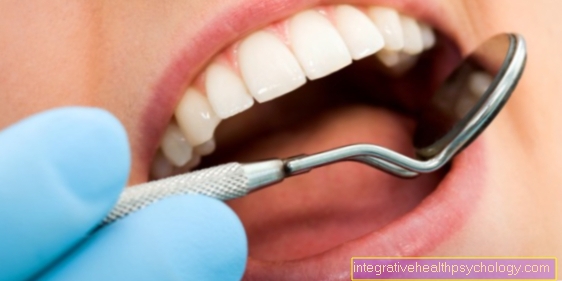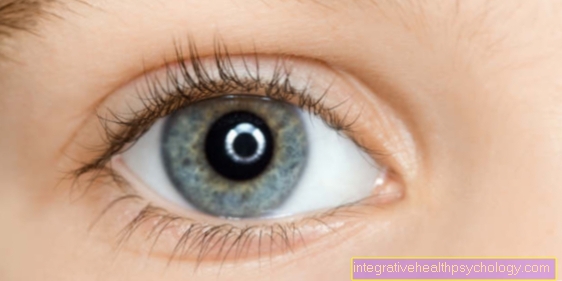Depression Information for Relatives
General
If someone close to you suffers from depression, this is also a difficult situation for those around you, especially for the closest family members and best friends.
It is often a tightrope walk between helping the loved one and giving up on oneself.
You can only be a stable support for your partner if you yourself have the most "sound soul" possible. It is also important that it is not the responsibility of the relatives to treat the depressed person. There are always people who, unintentionally and unconsciously, have the feeling that they have to heal the depressed person. This is not possible and also makes little sense.

Dealing with the sick
It is important not to underestimate the disease.
This is a very serious illness that must be taken seriously and treated professionally.
One should show understanding for the mood and situation in which the person concerned finds himself, even if healthy people can never fully understand this. They fail to recognize advice such as: "pull yourself together" and "go on vacation", or "don't be so ungrateful" or even that "everybody feels bad" and one should be grateful that it was good after all Situation completely and give the patient the feeling of not being understood and of being helpless.
On the other hand, you put more pressure on the depressed person and he feels even worse. Depression is a disease of the psyche, just as asthma is a disease of the lungs. It is therefore important to take the disease and illness as seriously as any other physical illness.
For many of those affected, it is all the more difficult to talk about mental illnesses, since acceptance in society is not necessarily as widespread as it is for physical illnesses. Ideally, relatives show that they do not dismiss the feelings and do not consider those affected to be “crazy” who “just have to pull themselves together”. Sometimes it helps if you offer to be there for conversations and listen, even if you can't understand how it feels.
Since people withdraw often during depression, it doesn't hurt to check on them every now and then and do small activities like taking a walk. Due to the listlessness that accompanies the disease, even the smallest activities are too much and require more energy than usual. Therefore, one shouldn't set too big goals. However, society can help you feel less alone. Depending on the degree of severity, it can also make sense to seek professional help for those affected in their project.
Depressed people unconsciously turn every or many thoughts into negative and often have hardly any feeling for positive things and thoughts. On the contrary, one should try to motivate the patient and be there for him.
It is enough to accompany him in everyday life and to support him in all his tasks. And just listening, even when words are missing, often works wonders. The patient should have the feeling of being understood with all his behavior and not being rejected. As much as one should motivate the depressed person, one should be careful not to overwhelm them.
There are some things that the person concerned cannot or cannot do and to demand these would only make both sides unhappy. Above all, this concerns the point of closeness! This is especially difficult for a sufferer to give when one cannot love oneself and all thoughts are negative. Relatives should therefore not see people suffering from depression under pressure or unnecessarily overwhelm them.
Where can relatives find help?

Relatives of people with depression can find help in various institutions.
Often they are the ones who notice a possible depression or mental illness before the person concerned. Advice can also be found in this situation. In addition to numerous websites and books, you can of course find help from a therapist or psychiatrist, as well as psychologists. To begin with, you should get an overview and recognize depression for what it is - a sometimes very serious illness.
For a healthy person it is often not easy to correctly interpret the behavior and feelings of the patient or even to put themselves in the situation. There are often misunderstandings. This is one of the main reasons why you should get enough information. Once you know, you may be less irritated to some behaviors. You can get this first overview very well through books and websites. Of course, other questions then arise, or you would like to talk to someone personally about your own condition.
A therapist or a self-help group in which one can exchange ideas with other affected persons and get advice is available. There is also the possibility of free therapy in every city. But you often have to wait a little longer for an appointment. In addition to understanding the illness of depression, it is good for many family members to talk to a therapist about their own health, fears and worries.
If you feel that you need this, you should definitely seek help. Finally, one shouldn't ignore the most important help: friends and family. It is important that you have people around you who listen to you, comfort you and who, especially if your partner is depressed, simply take your wife, husband, girlfriend or boyfriend with you to leisure activities and get him / her out of everyday life with the Sick can get something out.
You might also be interested in: My partner has depression- How do I best help?
Is there a guide for relatives of depressed people?
There are countless helpful points of contact such as the Federal Association of Relatives of Mentally Ill People (BApK) or the German Depression Aid, all of which offer various offers such as a pastoral care telephone or seminars on how to deal with depressed people. Self-help groups can also be useful to deal with the illness and to talk about your own difficulties in dealing with the depression. At NAKOS (national contact and information point for the suggestion and support of self-help groups) you can find self-help groups of relatives near your place of residence.
What should you do for yourself?
Next to the Understand When your loved one is ill, it is important to do a lot for yourself.
That means up if possible Do not do without hobbiesTo meet friends, just escape from everyday life every now and then. Of course, it always depends on how much contact you have with the patient and how much you suffer from it yourself.
This is especially true for especially related personswho may have permanent contact with the depressed person. It is also important to recognize your limits and to keep them. Ultimately, it doesn't help anyone if you overstrain yourself and in the end, possibly under yourself depressions suffers.
What can relatives do when they are overwhelmed themselves?
Depression is a disease that can burden not only those affected but also relatives for weeks or months. Relatives should therefore learn that they do not have to sacrifice themselves. It can also help to do something for yourself every now and then, like meeting friends or relaxing. Those who are overwhelmed by the situation do not have to grow beyond their limits. Friends and family may be able to take on some of the burden and help out. Social psychiatric services are also contact points when help is needed. They offer advice but also active support for sick people and their relatives with mental illness.
Can relatives get depressed themselves?
Anyone who suffers from depression or is prone to depressive moods can also be dragged into the same low mood by the depression of a loved one. Most relatives do not develop the full clinical picture of depression, but after a while they also experience more and more negative feelings such as frustration, helplessness, feelings of guilt or anger. It is therefore important not to overstep your own limits, because nobody benefits from that. If you are threatened with excessive demands, it is advisable to seek help, regardless of whether it comes from the social environment or professionally. The situation is also not easy for relatives, which can easily be overlooked. It is therefore all the more important to do something good for yourself now and then so that you feel better without feeling guilty.
Read about this too: These are signs of depression
The feelings of the loved ones
Many relatives are not just Sad and desperate or have compassion, but are too sometimes angry and irritated.
One is annoyed that help is not accepted or that the person concerned negates himself and everything else. Needs are not adequately met, especially in partnerships, and sometimes it is difficult to always understand everything and just be there. This is how these negative feelings often arise and very often relatives feel bad about them. But it is right, important and normal to have such feelings.
One should stand by it and not too strict with yourself be. However, one should refrain from blaming the sick person, because that will certainly not improve the situation.
Dealing with suicide threats
Suicide threats are not uncommon in connection with depression and must be taken very seriously.
Nothing is worse than ignoring or minimizing it. It doesn't matter whether they were actually meant seriously or just said that way. We can never know 100% what is really going on in the patient. You can find crisis intervention teams in most cities where you can get advice.
The patient should be encouraged to seek professional help. The teams also help you with lots of tips. For example, if you have the feeling that the depressed person is in acute danger of death, you should not hesitate to call the emergency services and the police. There are also hotlines that the patient can contact in an acute situation. You should definitely bring this possibility closer to him. Acute situations require special procedures. Even if the patient does not want the ambulance and the police to be informed, this should be done, even if, in the worst case, one violates trust.
If you want to read more on the topic, read also: Thoughts of suicide- what to do as a relative
Enlighten fellow human beings
Especially other family membersChildren, especially children, should know what is going on with the person concerned. It is important to educate your close relatives so that everyone can pull together. Still you should no decisions behind your back of the sick.
If he does not want certain people to know about his illness, these wishes should be addressed in any case. A depressed person is still one responsible person.
Depression as a reason for separation?
Depression is a serious mental illness that can be stressful not only for those affected but also for relatives. Relationships in particular are put to the test and are so stressed that almost every other relationship can lead to a breakup due to a partner's depression. Separation is often very difficult for both parties, but one partner may not be able to cope with the burden of the illness.
If the depression is the only reason for a separation, it makes sense to separate the patient's social environment from the plan before separating, to inform them so that friends and family know in good time and can prepare for a possible worsening of the problems.
However, it is not possible to give general advice on how to behave after the separation, as this depends on many factors such as the severity of the depression or the relationship between the exes after the separation. It makes sense to discuss the role in the life of the ex-partner with the treating therapist in advance. The question of whether to give the relationship a second chance after successful therapy or under other circumstances also depends very much on one's own judgment and that of the partner. Nevertheless, one should try to make the understanding of the disease clear and to signal to the person affected that he is not to blame for his condition.
Please also read: My partner has depression - what should I do?




